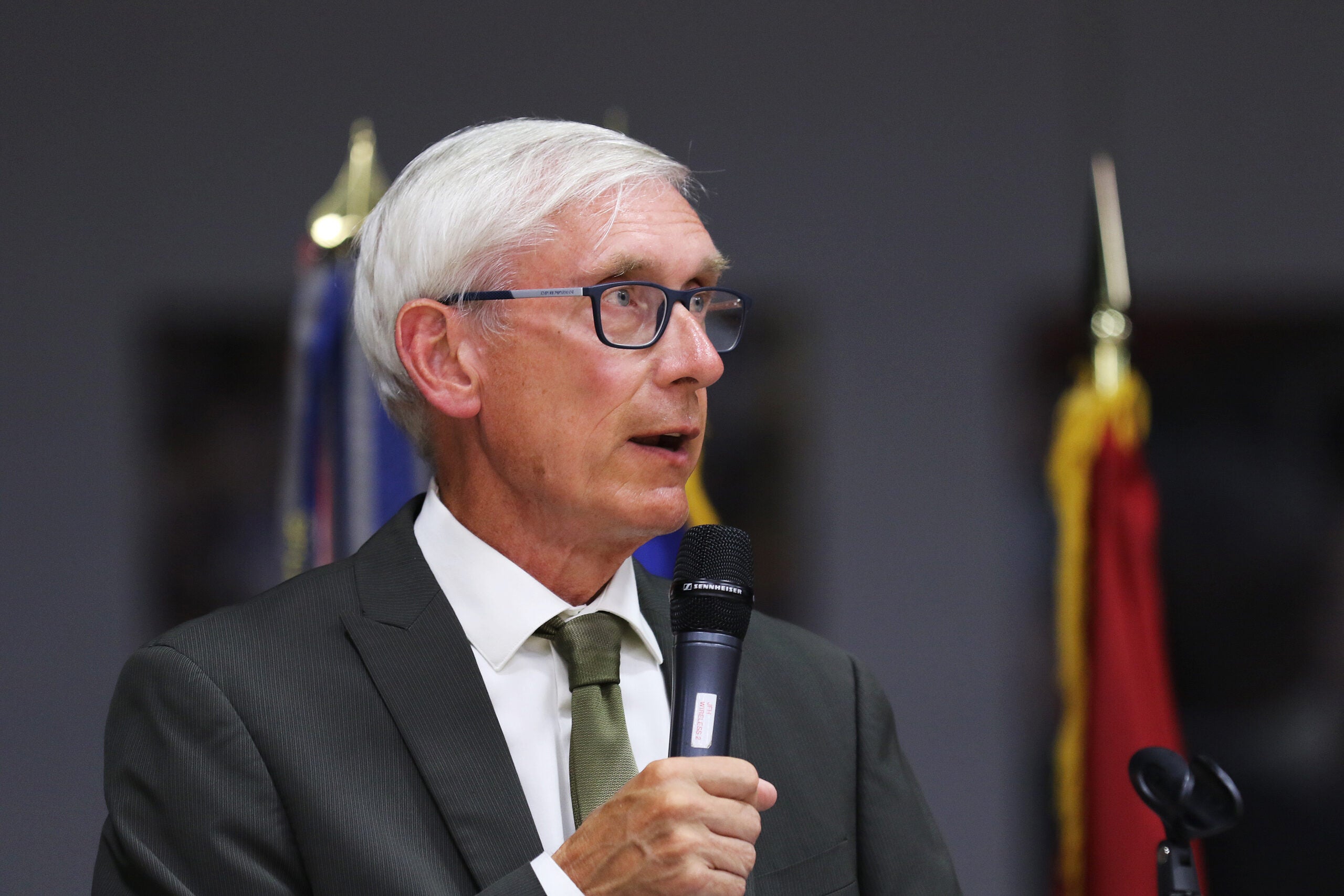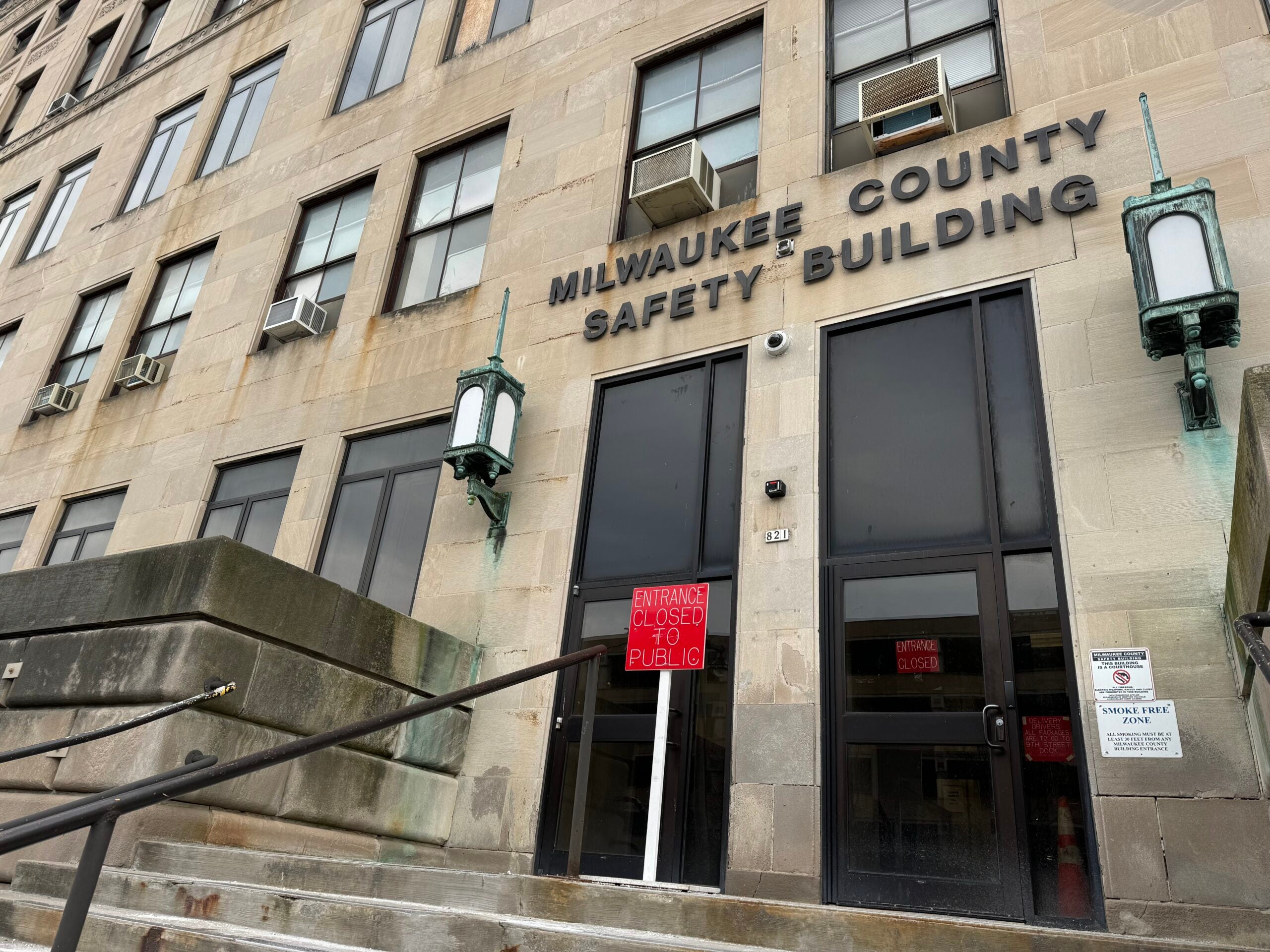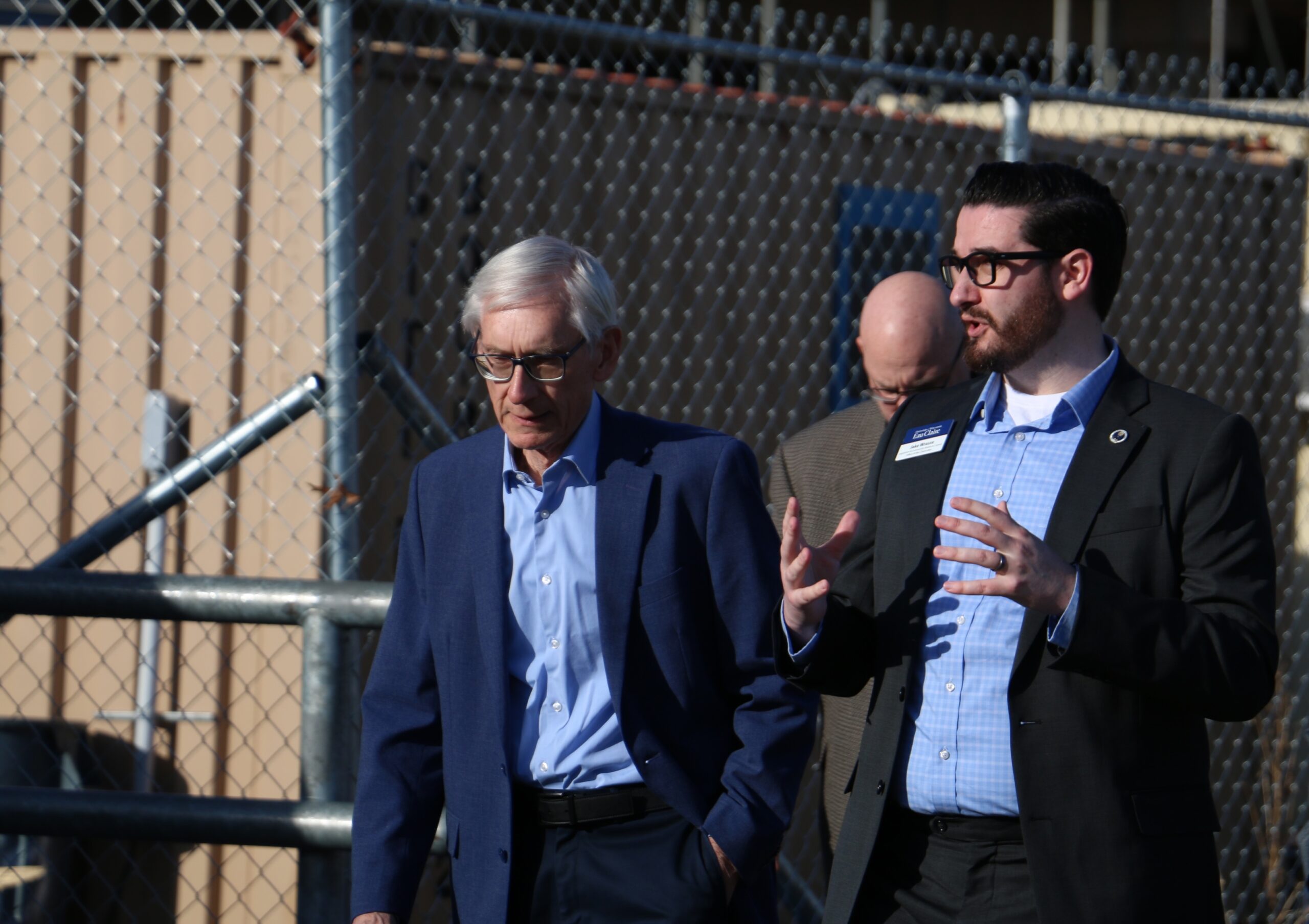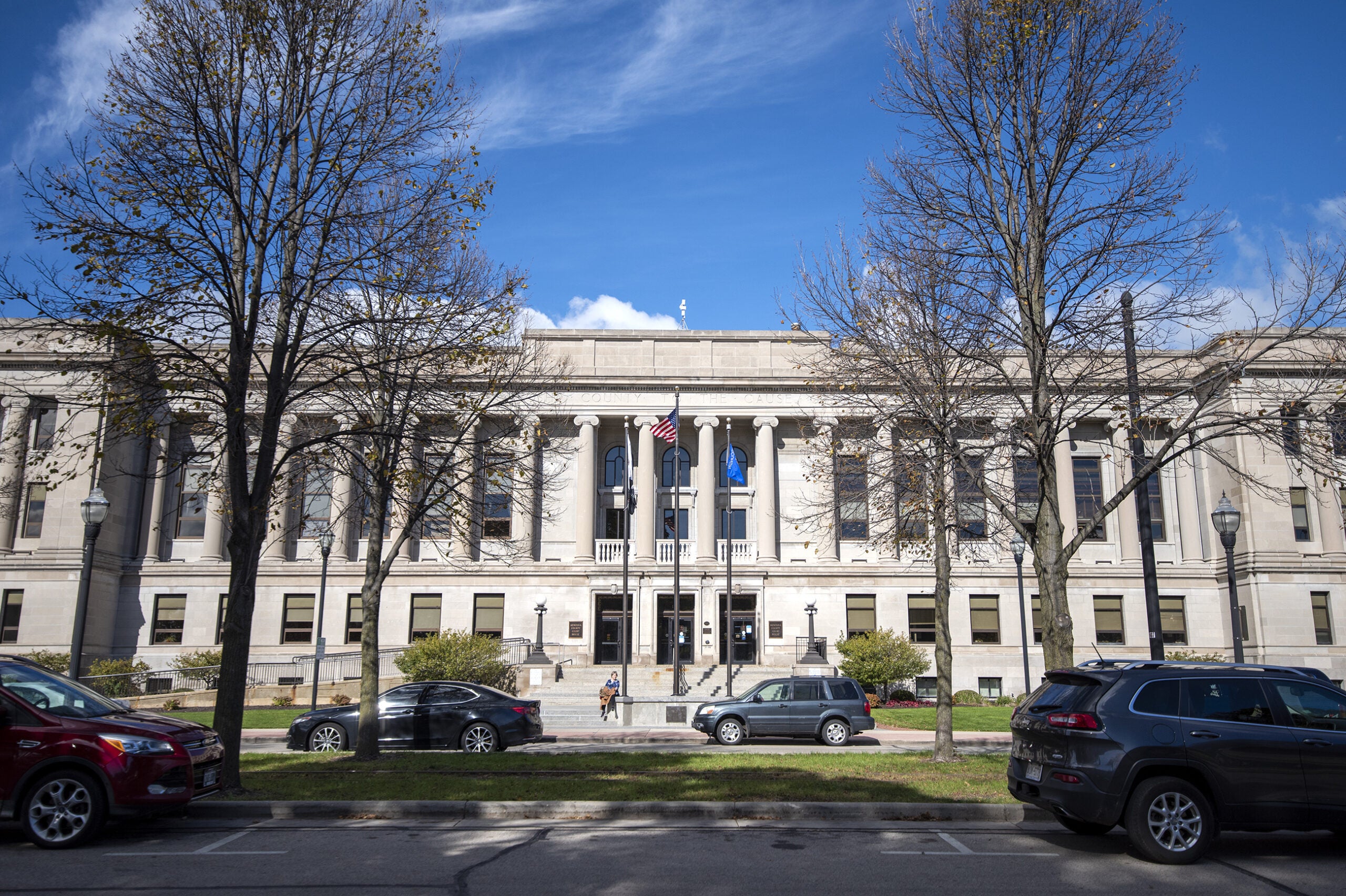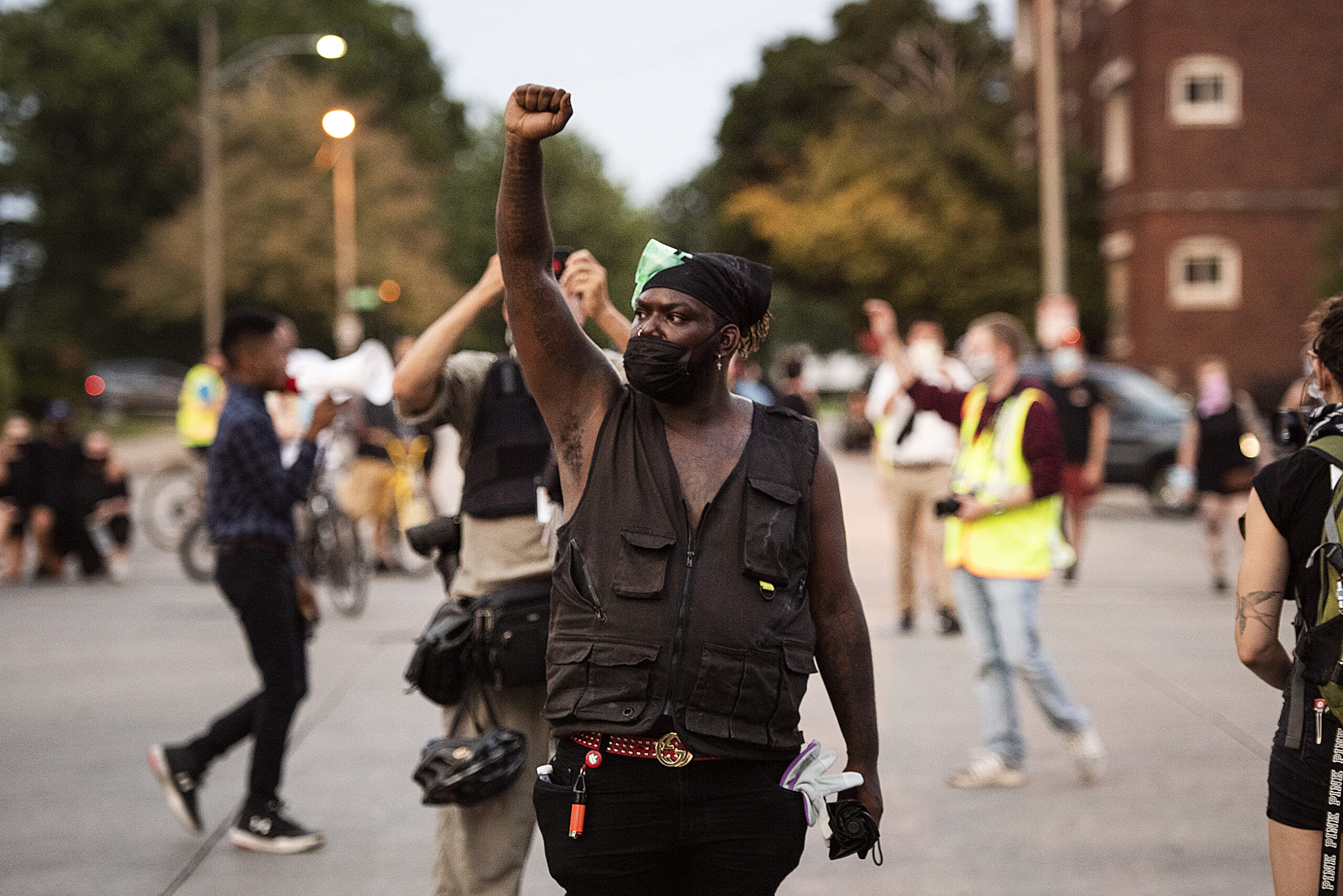Gov. Tony Evers kept the door open Wednesday to extending the public health emergency that let him issue a statewide mask mandate, adding that he would fight a conservative lawsuit that seeks to stop it.
In a wide-ranging interview hosted by the Milwaukee Press Club, Evers also defended the University of Wisconsin System’s plans to return to campus and said he wouldn’t change anything about how his administration responded to the recent unrest in Kenosha.
Evers issued the statewide mask mandate on July 30, using a power in state law that lets governors declare public health emergencies for up to 60 days. Evers used the same law to issue another 60-day emergency in March during the early days of the pandemic.
Stay informed on the latest news
Sign up for WPR’s email newsletter.
The Wisconsin Institute for Law and Liberty (WILL) filed a lawsuit over the mandate in late August, arguing that it was unlawful for Evers to declare multiple emergencies for the same event. That lawsuit is ongoing.
“We will fight we will fight every step of the way to make sure that this one small thing that everybody can do remains in place until we’re told that the numbers are down,” Evers said in a discussion that was broadcast by the Wisconsin Eye public affairs network.
Evers’ current order is set to expire on Sept. 28 unless it’s rescinded before then by the governor, the Legislature or a court order. But Evers gave no indication that he would rescind the masking order himself, and he didn’t rule out extending it.
“We’ll cross that bridge when we get there whether we extend it or not,” Evers said.
The governor’s comments come as the state has seen the percentage of positive COVID-19 tests rise, particularly on the campuses of the University of Wisconsin where students are returning to in-person instruction.
Wednesday afternoon, Dane County urged the UW Madison to send dorm residents home in an effort to slow a spike in COVID-19 cases.
Evers, who spoke shortly before Dane County’s request became public, said he supported the UW’s plans to return to campus.
“Yes, I support the UW’s effort to bring some normalcy to, you know, thousands of kids and be safe at the same time,” Evers said. “I think they’re doing a great job. It is an uphill fight and we have to be prepared that it will be bumpy.”
On Kenosha: ‘I Would Not Change Anything That I Did’
Also Wednesday, Evers stood by his administration’s response to the unrest in Kenosha in the days following the Aug. 23 police shooting of Jacob Blake.
“I would not change anything that I did,” Evers said Wednesday. “We met every request that the city and county of Kenosha asked us.”
At the same time, Evers acknowledged rejecting an offer by White House Chief of Staff Mark Meadows to send federal agents from the Department of Homeland Security to Kenosha.
“I did turn down the bringing in the Homeland Security people because I saw how poorly that played out in Portland,” Evers said. “And I didn’t think that would be a good thing.”
After Evers spoke, the Wisconsin National Guard announced it had ended its Kenosha deployment on Sept. 7, presenting the most detailed picture yet of how many troops were in the city over the course of the past few weeks.
According to a statement from the Wisconsin National Guard’s public affairs office, approximately 125 troops arrived in Kenosha on Aug. 24, a number that doubled to 250 on Aug. 25 and doubled again to 500 on Aug. 26.
After Evers requested additional National Guard support from other states on Aug. 26, Michigan, Arizona and Alabama sent more than 700 troops, according to the statement. By Aug. 28, it said approximately 2,000 National Guard troops were on the ground in Kenosha, including more than 1,200 Wisconsin National Guard troops.
Republicans have criticized Evers for not accepting more federal help and for his initial comments on the night police shot Blake. Evers said Wednesday that his comments were factual, and that he stood by them.
“What I saw was African American man getting into his car and he was shot seven times by a police officer,” Evers said.
But the governor stopped short of Democratic presidential nominee Joe Biden’s position that the officer who shot Blake should be charged. In Wisconsin, police shootings are investigated by the state attorney general, but the decision to charge is left up to the local district attorney.
“I am waiting, as are other people, for … the attorney general to complete his study,” Evers said.
While Kenosha drew national attention for Blake’s shooting and the unrest that followed, Madison also saw continued property damage as demonstrators smashed windows downtown. Many downtown windows have since been boarded up, some for the second time this summer.
“Hopefully there might be some ways for the state to assist them, just like we should assist the people and the business people in Kenosha,” Evers said.
Wisconsin Public Radio, © Copyright 2025, Board of Regents of the University of Wisconsin System and Wisconsin Educational Communications Board.
